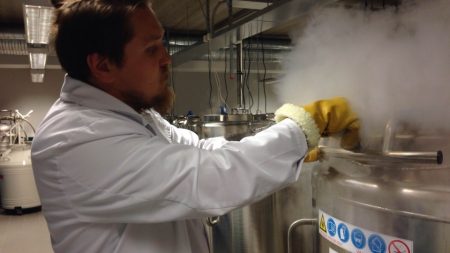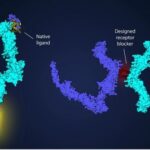April 2, 2018 – Estonia has e-residence. Estonia has i-voting. And now Estonia is testing 100,000 of its 1.3 million residents to analyze their DNA and provide lifestyle and health advice. Estonians will be asked to provide blood samples for DNA testing by the Estonian Genome Center in charge of the research. Within 48 hours of program’s launch last month the entire 100,000 compliment was filled by volunteers.
What does Estonia hope to gain from DNA testing its citizens?
The country wants to improve the health of its population and be able to prevent or delay disease onset through the identification of those showing genetic risk. If the testing proves successful the plan is to roll out the program to all residents in the country creating a biobank and fully secure information system.
Some question the value of DNA testing a large population group. Others in the program question just how much information should be shared with participants. For example, if disease risk is discovered should the information be sent to the person’s doctor or just to the individual?
Or should the data be anonymized, so that it only generally reflects the population’s health with no individual receiving personal genetic information? Personal data in the hands of insurers could lead to people being denied health coverage.
Some geneticists question the efficacy of telling someone that he or she has a defective gene that may present itself as a disease in the near or far future. Genetics alone doesn’t necessarily mean the person will get sick. Many other factors need to be considered including: where the person lives, environmental conditions both in and out of doors, what kind of work they do, stresses in their lives, pollutant exposure, eating and lifestyle habits, and more.
And being told you have a defective gene may create unneeded anxiety for the person receiving the information.
The 100,000 submitting blood samples will have them analyzed for more than 600,000 variants. Screening for genetic defects associated with high cholesterol, cancers, and heart disease will be a major focus. The testers also hope to screen for rarer diseases associated with defective genes, as well as drug sensitivity to those most commonly prescribed.
Personal DNA testing has become very popular with products like Ancestry DNA and 23andMe. But these are largely recreational pursuits by those who are curious about identifying heritage. Recently, a version of 23andMe aimed at detecting BRCA1 and 2 genes associated with breast, ovarian and prostate cancer risk, was given FDA approval in the U.S. But these DNA tests can produce lots of false positives. If someone gets a positive test it is highly recommended that they seek professional genetic counseling.
The Estonian experiment may equally yield lots of false positives for genetic defects. If so, what was seen as a way to manage healthcare costs better, may backfire as more comprehensive retesting and screening becomes necessary.









